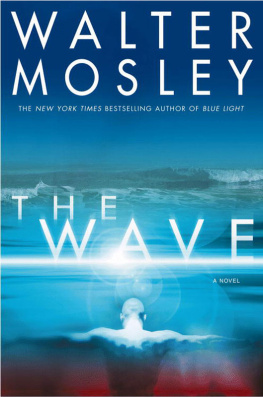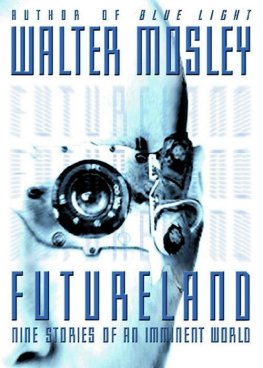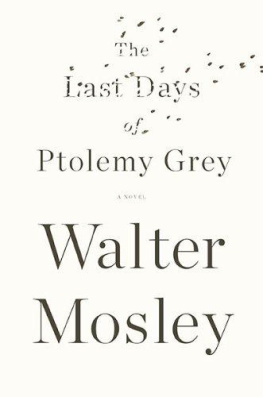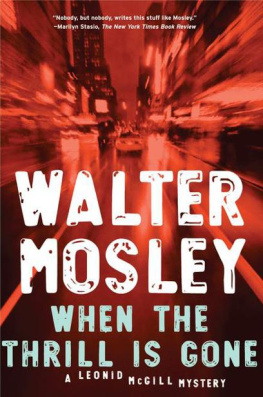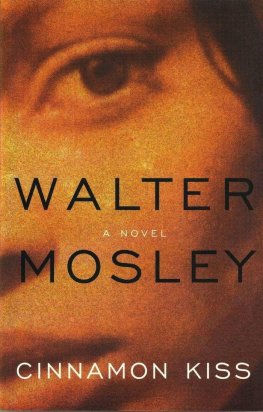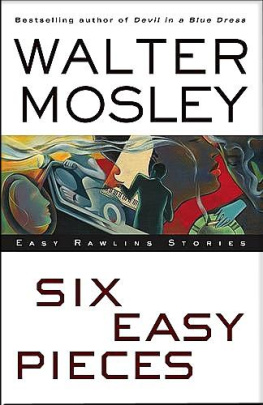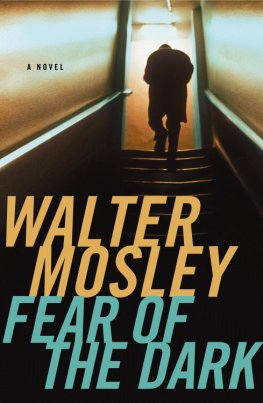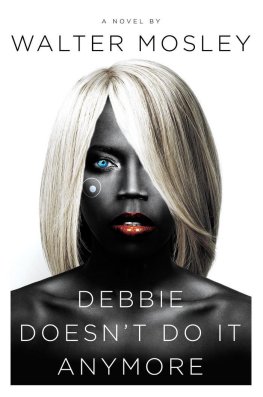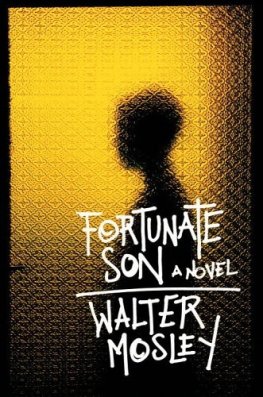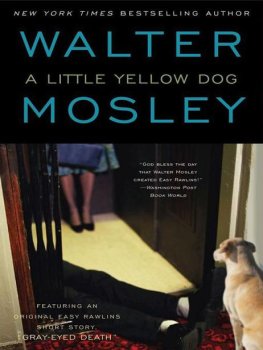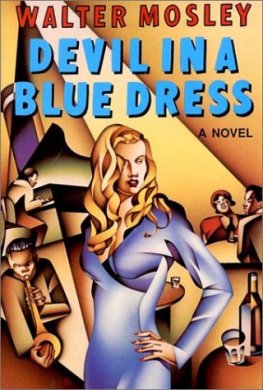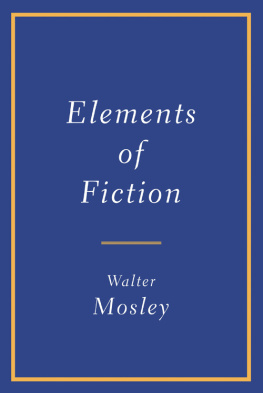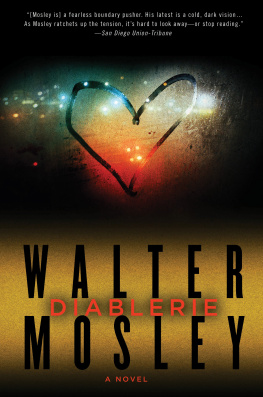Walter Mosley - The Wave
Here you can read online Walter Mosley - The Wave full text of the book (entire story) in english for free. Download pdf and epub, get meaning, cover and reviews about this ebook. year: 2007, publisher: Grand Central Publishing, genre: Detective and thriller. Description of the work, (preface) as well as reviews are available. Best literature library LitArk.com created for fans of good reading and offers a wide selection of genres:
Romance novel
Science fiction
Adventure
Detective
Science
History
Home and family
Prose
Art
Politics
Computer
Non-fiction
Religion
Business
Children
Humor
Choose a favorite category and find really read worthwhile books. Enjoy immersion in the world of imagination, feel the emotions of the characters or learn something new for yourself, make an fascinating discovery.
- Book:The Wave
- Author:
- Publisher:Grand Central Publishing
- Genre:
- Year:2007
- Rating:4 / 5
- Favourites:Add to favourites
- Your mark:
- 80
- 1
- 2
- 3
- 4
- 5
The Wave: summary, description and annotation
We offer to read an annotation, description, summary or preface (depends on what the author of the book "The Wave" wrote himself). If you haven't found the necessary information about the book — write in the comments, we will try to find it.
The Wave — read online for free the complete book (whole text) full work
Below is the text of the book, divided by pages. System saving the place of the last page read, allows you to conveniently read the book "The Wave" online for free, without having to search again every time where you left off. Put a bookmark, and you can go to the page where you finished reading at any time.
Font size:
Interval:
Bookmark:
SCIENCE FICTION
Futureland
Blue Light
YOUNG ADULT FICTION
47
EASY RAWLINS BOOKS
Devil in a Blue Dress
A Red Death
White Butterfly
Black Betty
A Little Yellow Dog
Gone Fishin
Bad Boy Brawly Brown
Six Easy Pieces
Little Scarlet
Cinnamon Kiss
FICTION
RLs Dream
Always Outnumbered, Always Outgunned
Walkin the Dog
Fearless Jones
Fear Itself
NONFICTION
Workin on the Chain Gang
What Next: A Memoir Toward World Peace
WALTER MOSLEY is the author of numerous bestselling works of fiction and nonfiction, including the acclaimed Easy Rawlins series of mysteries. The first Easy Rawlins novel, Devil in a Blue Dress, was made into a feature film starring Denzel Washington and Don Cheadle. Another work, Always Outnumbered, Always Outgunned, for which Mosley received the Anisfield-Wolf Book Award, was made into an HBO feature film starring Laurence Fishburne. His science fiction books include Blue Light, Futureland, and a bestselling novel for young readers, 47. Born in Los Angeles, he has been a potter, a computer programmer, and a poet. He lives in New York.
a cognizant original v5 release november 04 2010
... naked, naked... I dont have any clothes... so so cold...
Who is this? I asked.
So cold, the voice said again.
Who is this?
... cold and naked. Sleeping in the trees.
He hung up then. It was the fourth evening in a week that hed called. The first night he only grunted and moaned. Two days later, he spoke in single words. Those words were cold and naked. The voice was definitely masculine but strained and frightened. The next night he used the same two words, but he doubled up on them from time to time, saying, naked, cold, cold, naked. He was pleading, but I didnt know what he wanted. He didnt seem threatening, just desperate and crazed.
When I told Nella about it, she said that I should call the police.
Theres no telling what psychotic notions he might have in his head, the buttercream-colored, dreadlock-wearing ceramicist warned. He might be working up to coming in there and slaughtering you and everybody in your whole house.
He doesnt even know my name, I said.
He knows your number, the lovely young Jamaican reasoned.
He probably dialed it once, and now its on his redial or something.
Better be safe, Nella said, than dead.
I wasnt worried about a few crank calls. In my head, I had worked out that the poor guy was already in a mental institution. That he was on the honor plan or something like that. At night he got confused and hallucinated that he was naked and cold, living in the woods. Thats how it was with my grandmother before she died. During the day she was perfectly lucid, talking about old times in Atlanta before she and my grandfather moved to Los Angeles. She had all kinds of great stories about her wild days as a young girl and then, after she was married, about her friends in the church choir. She was also a member of the Southern Christian Leadership Conference.
Back then Martin Luther King stood down the whole Old Boy systemand beat em, too, Grandma Angeline used to say.
Those talks were during the day. But after the sun set, she experienced night terrors. Her husband returned from the grave and blamed her for poisoning him. She would run away from the assisted-living home and wander Pico Boulevard in Los Angeles looking for the bus to Peachtree Street in downtown Atlanta. Sometimes she bullied older male patients in the residence, taking their desserts or pushing them down when their backs were turned. For years the administrators were on the verge of moving my grandmother to a facility that offered more restrictive care.
Then I would go in and talk with her about members of our family whom Id never met, about whom my father never spoke. There was Albert Trellmore, for instance, the bookkeeper and arsonist. Every Fourth of July, he set fire to one of the big corporations or production companies around Georgia. He loved fires and hated what big businesses did to the poor.
He burnt lumber companies, banks, loadin dock warehouses, and big department stores for over twenty-seven years, my Grandma Angeline told me one gray June day. We were sitting on the first floor of the residence, near a glass wall that looked out on Pico. He woulda kept it up for twenty-seven more if it wasnt for that train-yard fire he set.
What happened then, Grandma?
He didnt think that somea the hoboes might have been sleepin under the depot. One of them men died, and it broke Alberts heart. He never set another fire, and died just two years later.
Whyd he set those fires in the first place? I asked my eighty-eight-year-old gram.
White people, she said. Some of em used to refuse to hire black. Some would abuse the ones they had workin for em. Now and then there was a Klansman had all his money wrapped up in onea them places.
But why do it on the Fourth of July?
Called it his patriotic duty, she said, and we both got a big laugh out of it.
After one of my visits, Grandma Angeline would calm down during the evenings. For a few weeks, we wouldnt get any complaints at all from the residence.
I liked visiting my grandmother. My father, when he was still alive, never wanted to talk about the old days down south. He rarely visited his mother, because she insisted in talking about all that old shit, as he used to say.
But I liked her stories, and I didnt care if she went crazy at night and wandered the streets of L.A. looking for Atlanta landmarks.
My mother was from an Orange County WASP family that didnt have many good stories. She cooked the meals and made sure that my sister and I were healthy, but she didnt know how to have funat least thats what I thought. And so, when the crazy man who was naked and cold and living in the trees called, I had a soft spot for him like I did for my grandmother and my cousin Albert Trellmore.
That night I dreamed about my father. He was emaciated, as he had been during the last months of his cancer. He had sunken black cheeks and big eyes that seemed to belong to an inquisitive infant rather than a sixty-year-old man. In his last days, he insisted on sitting up and then standing to greet me every morning when I came over to see him. Hed always utter some word that would speak a whole volume in our personal history.
Kangol, he said on the last morning I saw him.
We both loved those hats. Actually, I didnt care much about them, but I wore one because my father had bought it for me.
I made up my mind to go out and buy him a blue Kangol and to bring it as a surprise the next day. I had to go to three different department stores before I found the right one. But when I brought it to my parents apartment the next morning, they were gone. Their absence could only have meant that my father had died in the night. I sat at the kitchen table until my mother returned. She told me that everything was better now because at least he was no longer in pain.
In the dream, he was just as skinny and still on his deathbed. But he was flexing his muscles and sitting up against a pile of pillows.
How are you, Dad?
Much better, Errol. Im doing those exercises the nurse gave me. She said if I keep it up, Ill beat this cancer in three months.
An elation spread through me that was so powerful I woke up rising out of the bed. I paced around the onetime garage that was now my home, hoping to find some clue to the dream in my waking world.
Angelique accepted GT as her father with no qualms and few questions. I thought at the time that it had something to do with her pregnancy; the life growing inside her enhancing her spiritual side.
Next pageFont size:
Interval:
Bookmark:
Similar books «The Wave»
Look at similar books to The Wave. We have selected literature similar in name and meaning in the hope of providing readers with more options to find new, interesting, not yet read works.
Discussion, reviews of the book The Wave and just readers' own opinions. Leave your comments, write what you think about the work, its meaning or the main characters. Specify what exactly you liked and what you didn't like, and why you think so.

